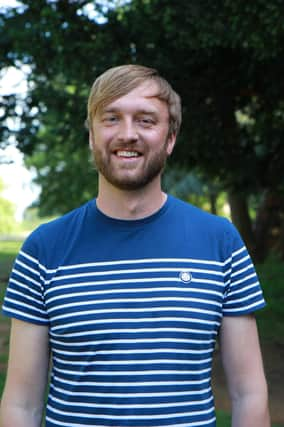Assisted suicide: any attempt to change the law in Scotland should be resisted - Stuart Weir


In this world, ageing family members are sometimes to be found in sheltered housing, enabling them to make the most of their independence while having the safety net of care at hand. Others are embedded in the lives of the generation coming behind and belong in the family home as much as the youngsters with their youthful energy. There is consideration of their lives and they feel as valued as any other member of the tribe.
Increasing numbers of mental ill-health is met with patient understanding. Complex symptoms are given detailed and specific treatment. If appropriate, people’s hands are held. Convalescence makes a comeback and psychosomatic, spiritual and physical solutions are found to prevent escalating darkness. Whether in adolescence or the abyss of men around forty, reassurance that each one matters is the message that comes across. Not just for themselves, but as they belong to the wider whole.
Advertisement
Hide AdAdvertisement
Hide AdThose in healthcare at the very beginning of their learning and practice take solemn oaths to always approach their interactions with patients with benevolence and healing. The means as well as the ends matter. This atmosphere permeates throughout GP surgeries, hospitals and community visits that trust in professionals is unquestioned. Their beneficence and goodwill to everyone they encounter smacks of the best kind of chaplaincy. There is never any nagging doubt in patients’ minds that there is some sinister ulterior motive at play. ‘Care’ is exactly that. Repeated visits to physicians, despite excellent care, is never any trouble. There seems to be no trivial matter that cannot be absorbed in their kindness.
The Government of this place does everything in its power to champion human life. It considers wanton death a sign of a society having lost its way. Its legislation provides the most robust ramparts to the healthcare oaths of each and every one in their employ. Physicians everywhere, therefore, are confident in their remit from beginning to end. Complex matters are debated and heard, but life itself, even amidst the despair of some, is never up for grabs. Such emphasis sets a tone among its people and it reassures them that no hidden Malthusian agenda is simmering underneath to rid its weakest members.
This society is one which sees the care and protection of its most vulnerable members as its most important hallmark.
Wait a minute?! Isn’t this a picture of Scotland today? More or less. I am erring on the side of generosity a little.
Could end of life care be improved? Unquestionably. There is some way to go with consistent and effective palliative care, but this tremendous form of care is increasingly upping its game. However, let’s not make matters worse! Let’s not do a u-turn on the care of Scotland’s weakest. Let’s not consider offering assisted suicide as an end of life ‘option’ going forward. To do so would be to commit personal and cultural suicide.
If we’ve learned anything about COVID-19, it’s that we are not isolated atoms that have no bearing on the lives of others; we are all part of a delicately balanced equilibrium of life.
As we emerge from the devastating effects of this pandemic, let’s continue the care for the vulnerable we have demonstrated so powerfully over the last year, and ensure any attempt to change the law on assisted suicide is thwarted in its tracks.
Stuart Weir, National Director of CARE for Scotland
Comments
Want to join the conversation? Please or to comment on this article.